9 Outdoor Education 1
Section outline
-
-
Opened: Monday, 21 October 2024, 12:00 AMDue: Friday, 28 October 2050, 12:00 AM
-
Opened: Monday, 21 October 2024, 12:00 AMDue: Friday, 28 October 2050, 12:00 AM
-
-
EXPLORE / TŪHURA learning intentions:
- We are EXPLORING … camping skills by… collaborating with our classmates to organise and plan for an overnight camp.
- We are EXPLORING … camping skills by… recognising risks and dangers whilst camping and cooking in the outdoors
- We are EXPLORING … camping & tramping by… discovering skills and knowledge needed for a tramp and overnight camp.
- We are EXPLORING … survival skills and strategies by… discovering a variety of skills required to protect ourselves in nature.
This year, you will:
- build knowledge, skills & attitudes for success
- enjoy challenging outdoor activities
- learn to succeed in unfamiliar situations, both individually and in groups
- co-operate, solve problems, communicate, lead, take responsibility
- understand how we can sustain a healthy environment
- have the opportunity to achieve the William Pyke Award
Our course is guided by the NZ Curriculum .
Level 5 Heath & PE relevant achievement objectives:
A2 Experience a range of enjoyable physical activities and describe how involvement affects well-being and lifestyle balance.
A4 Investigate & practise safety procedures & strategies to manage risk situations.
B1 Acquire & apply complex motor skills by using basic principles of motor learning.
B2 Develop skills and responsible attitudes in challenging physical situations.
C3 Demonstrate interpersonal skills that help to make safe choices in a variety of settings.Level 5 Science relevant Achievement Objectives:
Summary of activities:
Investigate interdependence of living things (incl humans) in an ecosystem
Level 5 Social Sciences relevant achievement objectives:
Understand how people’s management of resources impacts on environmental and social sustainability.
Term 1: Team ABL problem solving, water safety & sports, navigation
Term 2: Tramping, campcraft & overnight camp, environmental sustainability
Term 3: First Aid, trip planning, weather
Term 4: Mountain biking
Assessment:
You'll be self and teacher assessed, based on observations and learning journal reflections:
- how much your skills progress over time
- how much knowledge you gain & apply
- your attitude & team spirit in challenging situations
Focus AOs Assessment Team building (ABL)
Water safety & activities
Enviromental Sustainability
William Pike ChallengeTeam building & Interpersonal Skills,
Positive Attitudes,
Enviro Sustainability knowledge & contributionMountain Bike,
Tramp / overnight camp,
Survival
William Pike ChallengeSafety Management,
Physical activities & motor skills
-
EXPLORE / TŪHURA learning intentions:
- We are EXPLORING … camping skills by… collaborating with our classmates to organise and plan for an overnight camp.
- We are EXPLORING … camping skills by… recognising risks and dangers whilst camping and cooking in the outdoors
- We are EXPLORING … camping & tramping by… discovering skills and knowledge needed for a tramp and overnight camp.
- We are EXPLORING … survival skills and strategies by… discovering a variety of skills required to protect ourselves in nature.
EXPLORE / TŪHURA learning intentions:
- We are EXPLORING … interpersonal skills by… connecting with other members of my class during ABL sessions and outdoor activities.
This term's activities include Team building ABL challenges, first aid and orienteering.
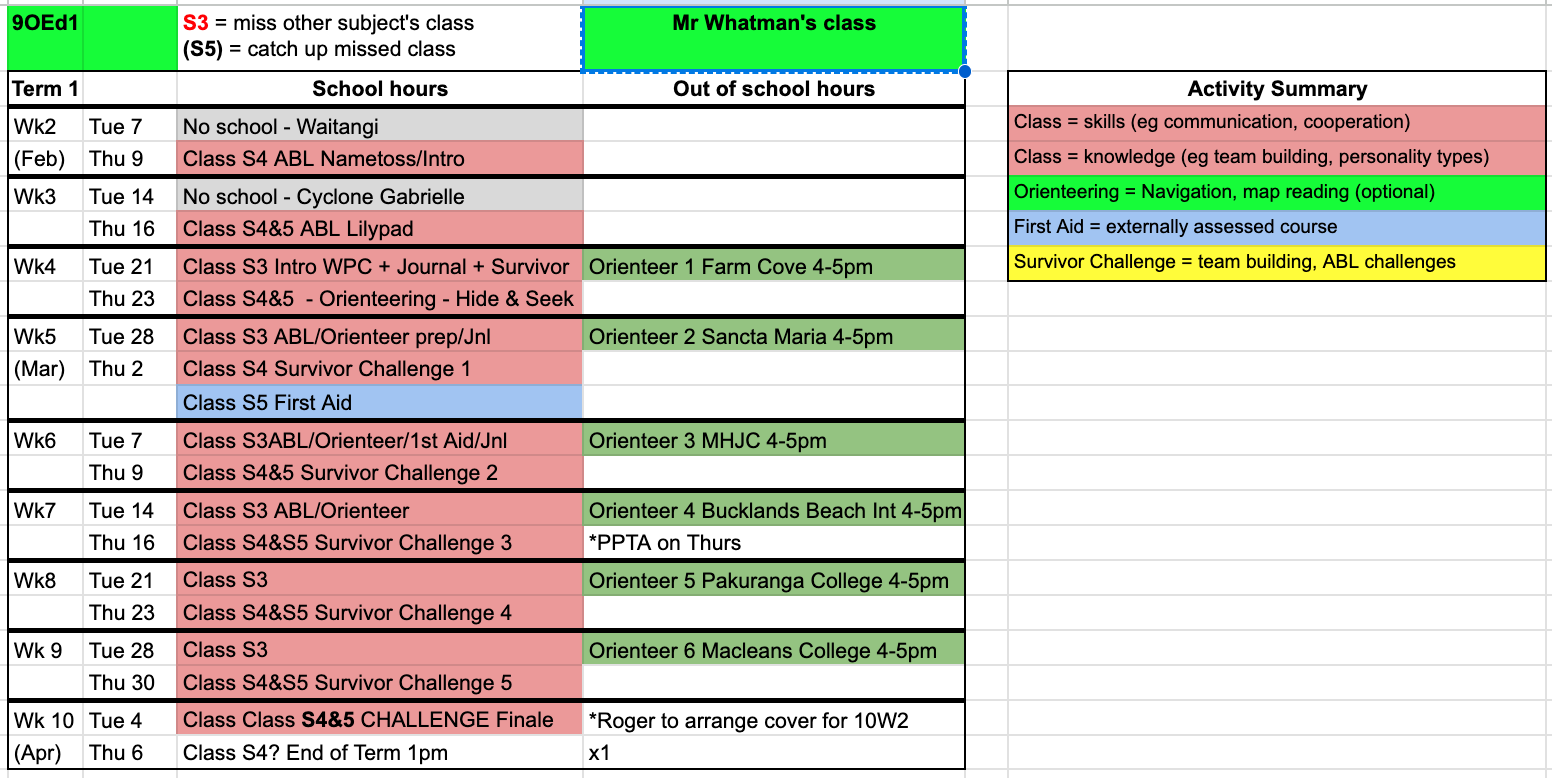
-
EXPLORE / TŪHURA learning intentions:
- We are EXPLORING … camping skills by… collaborating with our classmates to organise and plan for an overnight camp.
- We are EXPLORING … camping skills by… recognising risks and dangers whilst camping and cooking in the outdoors
- We are EXPLORING … camping & tramping by… discovering skills and knowledge needed for a tramp and overnight camp.
- We are EXPLORING … survival skills and strategies by… discovering a variety of skills required to protect ourselves in nature.
EXPLORE / TŪHURA learning intentions:
- We are EXPLORING … interpersonal skills by… connecting with other members of my class during ABL sessions and outdoor activities.
This year, you will:
- build knowledge, skills & attitudes for success
- enjoy challenging outdoor activities
- learn to succeed in unfamiliar situations, both individually and in groups
- co-operate, solve problems, communicate, lead, take responsibility
- understand how we can sustain a healthy environment
- have the opportunity to achieve the William Pyke Award
Our course is guided by the NZ Curriculum .
Level 5 Heath & PE relevant achievement objectives:
A2 Experience a range of enjoyable physical activities and describe how involvement affects well-being and lifestyle balance.
A4 Investigate & practise safety procedures & strategies to manage risk situations.
B1 Acquire & apply complex motor skills by using basic principles of motor learning.
B2 Develop skills and responsible attitudes in challenging physical situations.
C3 Demonstrate interpersonal skills that help to make safe choices in a variety of settings.Level 5 Science relevant Achievement Objectives:
Summary of activities:
Investigate interdependence of living things (incl humans) in an ecosystem
Level 5 Social Sciences relevant achievement objectives:
Understand how people’s management of resources impacts on environmental and social sustainability.
Term 1: Team ABL problem solving, water safety & sports, navigation
Term 2: Tramping, campcraft & overnight camp, environmental sustainability
Term 3: First Aid, trip planning, weather
Term 4: Mountain biking
Assessment:
You'll be self and teacher assessed, based on observations and learning journal reflections:
- how much your skills progress over time
- how much knowledge you gain & apply
- your attitude & team spirit in challenging situationsFocus AOs Assessment Team building (ABL)
Water safety & activities
Environmental Sustainability
William Pike ChallengeTeam building & Interpersonal Skills,
Positive Attitudes,
Enviro Sustainability knowledge & contributionMountain Bike,
Tramp / overnight camp,
Survival
William Pike ChallengeSafety Management,
Physical activities & motor skills
-
EXPLORE / TŪHURA learning intentions:
- We are EXPLORING … interpersonal skills by… connecting with other members of my class during ABL sessions and outdoor activities.
Team Building
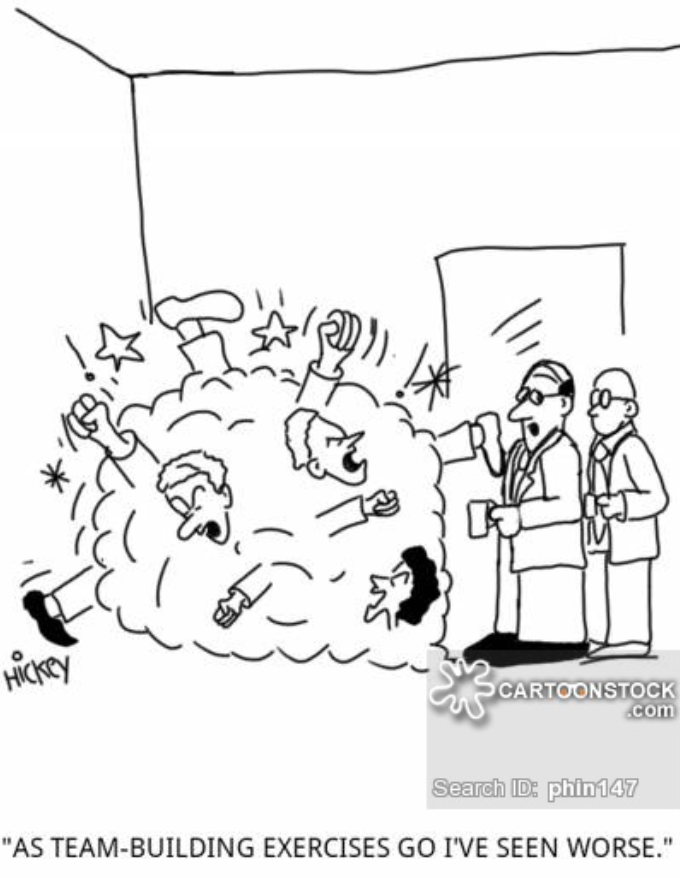
Learning Intentions
- Start to 'Form' our class as a team
- Build relationships (learn names, etc)
- Investigate different personalities
Success Criteria
- We've learned students' names
- We've worked together to solve problems
- We see that all personalities in a team is best
ABL: team building activities
We'll take it in turns to run a problem solving challenge (ABL game).
One idea is the 'Time bomb' game:
All form a circle and each say their name.
One throws a ball to someone, who has 2 seconds to say another’s name and throw the ball to them, before it “explodes” and they are out of the game. Continue until only one student remains.Forming Teams

Think about what stage our class team is at.
Here's a short video clip on Stages of Team Formation
Contribute to this shared Google Doc in Google Classroom called 'Building a Team'.
- add a photo of something that represents who you are as a person
- give info about yourself (eg a strength or skill, something you did that worried you)
Interpersonal skills
Communicating effectively is essential if your team is to succeed.
Communication can fail if:
- the message is . .
- the medium is . . .
- the 'sender' is . . .
- the 'receiver' is . . .
-
EXPLORE / TŪHURA learning intentions:
- We are EXPLORING … interpersonal skills by… connecting with other members of my class during ABL sessions and outdoor activities.
Wk4 Tue 21 Class S3 Intro WPC + Journal + Survivor Orienteer 1 Farm Cove 4-5pm Thu 23 Class S4&5 - Orienteering - Hide & Seek
-
EXPLORE / TŪHURA learning intentions:
- We are EXPLORING … interpersonal skills by… connecting with other members of my class during ABL sessions and outdoor activities.
Success Criteria:

FOCUS / ARONGA learning intentions:
- We are FOCUSED on … positive attitudes by… developing my ability to accept challenges, and extend my abilities in a variety of outdoor activities.
Success Criteria:

PLAN & DO / WHAKAMAHI
learning intentions:
- We are PLANNING … to participate in the final survivor challenge so that we can… demonstrate the development of our interpersonal skills.
Success Criteria:

FIRST AID:
We are EXPLORING...Personal Health & Safety/Risk Management by recognising and responding to risks and situations that require first aid and or medical treatment.
We are FOCUSED on responding to an emergency by applying DRSABC and taking appropriate action.
We are FOCUSED on recognising soft tissue, head injuries and fractures and investigating the correct response to manage these situations using first aid.
We are FOCUSED on recognising environmental challenges and dangers and responding to different situations using first aid in the outdoors.
We are PLANNING...to apply our first aid knowledge/skills by identifying risks and needs and responding to different situations that will help keep us and others safe.
First Aid Success Criteria:
Activities:
Wk5 Tue 28 Class S3 ABL/Orienteer prep/Jnl Orienteer 2 Sancta Maria 4-5pm (Mar) Thu 2 Class S4 Survivor Challenge 1 Class S5 First Aid
-
FOCUS / ARONGA learning intentions:
- We are FOCUSED on … positive attitudes by… developing my ability to accept challenges, and extend my abilities in a variety of outdoor activities.
Success Criteria:

PLAN & DO / WHAKAMAHI
learning intentions:
- We are PLANNING … to participate in the final survivor challenge so that we can… demonstrate the development of our interpersonal skills.
Success Criteria:

Activities:
Wk7 Tue 14 Class S3 ABL/Orienteer Orienteer 4 Bucklands Beach Int 4-5pm Thu 16 Class S4&S5 Survivor Challenge 3 *PPTA on Thurs
-
FOCUS / ARONGA learning intentions:
- We are FOCUSED on … positive attitudes by… developing my ability to accept challenges, and extend my abilities in a variety of outdoor activities.
Success Criteria:

PLAN & DO / WHAKAMAHI
learning intentions:
- We are PLANNING … to participate in the final survivor challenge so that we can… demonstrate the development of our interpersonal skills.
Success Criteria:

Activities:
Wk8 Tue 21 Class S3 Orienteer 5 Pakuranga College 4-5pm Thu 23 Class S4&S5 Survivor Challenge 4
-
FOCUS / ARONGA learning intentions:
- We are FOCUSED on … positive attitudes by… developing my ability to accept challenges, and extend my abilities in a variety of outdoor activities.
Success Criteria:

PLAN & DO / WHAKAMAHI
learning intentions:
- We are PLANNING … to participate in the final survivor challenge so that we can… demonstrate the development of our interpersonal skills.
Success Criteria:

Activities:
Wk 9 Tue 28 Class S3 Orienteer 6 Macleans College 4-5pm Thu 30 Class S4&S5 Survivor Challenge 5
-
FOCUS / ARONGA learning intentions:
- We are FOCUSED on … positive attitudes by… developing my ability to accept challenges, and extend my abilities in a variety of outdoor activities.
Success Criteria:

PLAN & DO / WHAKAMAHI
learning intentions:
- We are PLANNING … to participate in the final survivor challenge so that we can… demonstrate the development of our interpersonal skills.
Success Criteria:

Activities:
Wk 10 Tue 4 Class Class S4&5 CHALLENGE Finale *Roger to arrange cover for 10W2 (Apr) Thu 6 Class S4? End of Term 1pm x1
-
Week 11
-
Term 2 Overview

-
FOCUS / ARONGA learning intentions:
- We are FOCUSED on … positive attitudes by… developing my ability to accept challenges, and extend my abilities in a variety of outdoor activities.
Success Criteria:

PLAN & DO / WHAKAMAHI
learning intentions:
- We are PLANNING … to participate in the final survivor challenge so that we can… demonstrate the development of our interpersonal skills.
Success Criteria:

Activities:
Wk 1 Tue Class S3 Weather #1 Thu Class S4&S5 Survivor Challenge 5
-
Orienteering:
Learning Intentions
To learn to read an orienteering map (scale, features, contours, orientation).
To learn to navigate a prepared course (distances, direction, pace).
To experience participating in an organised local orienteering event.Success Criteria
Can orientate a map and use a compass.
Can understand map features and navigate efficiently on varied terrain.We'll discuss:
- Orientating maps with & without a compass)
- Relating map symbols to terrain and vice versa
- Orienteering symbols
- Skills (eg thumbing the map to follow ground progress)
- Tactics to complete a course individually and within the set time.Week Tasks/Activities:
Omana Orienteering: Navigation, Map Reading, Conservation, Health and Safety
William Pike Challenge Conferences Continued
-
Single Lesson: Introduction to Rock Climbing - Google Slides and videos.
Practical Sessions at Extreme Edge:
Lesson 1 Practical: - Introduction to Rock Climbing by staff plus only using Self Belay Walls. - Students concentrate on exploring different grades of the walls, their technique and also having fun. To climb in pairs in order to help guide and support climber.
Lesson 2 Practical: - Continue to explore Self Belay Walls. Students have an introduction to Bouldering. The focus continues to be on form and efficiency when climbing.
Lesson 3&4 Practical: - Continue to explore Self Belay Walls. Students continue with Bouldering. The focus continues to be on form and efficiency when climbing.
Lesson 5 Practical: - Students Competition Day. Different Challenges to complete.
Hang Test - Students to complete a static hold on the climbing wall.
Other Tests - Pull up tests, Invisible chair etc.
Challenge Cards - Students use cards for "Challenge by Choice Activities"
Learning Intentions
To learn safety preparations - equipment (harness, carabiners, etc)
To learn roles, responsibilities & communication of belayer & climber
To learn to climb wasting least energy, strength and stamina.
To learn the different methods & styles of recreational & sports climbingSuccess Criteria
Can work with a climbing buddy to have an enjoyable & safe climb experience
Can climb a range of basic to intermediate indoor climb routes
Can explain the grading system of routes and the equipment usedWe'll discuss:
- Some rope-work / knots
- Equipment (eg cams, chocks, belay devices)
- Meaning of vocabulary used in the sport
- Skills in climbing (especially to save forearms!)See Document for Rock Climbing Cards
-
EXPLORE / TŪHURA learning intentions:
- We are EXPLORING … camping skills by… collaborating with our classmates to organise and plan for an overnight camp.
- We are EXPLORING … camping skills by… recognising risks and dangers whilst camping and cooking in the outdoors
- We are EXPLORING … camping & tramping by… discovering skills and knowledge needed for a tramp and overnight camp.
- We are EXPLORING … survival skills and strategies by… discovering a variety of skills required to protect ourselves in nature.
FOCUS / ARONGA learning intentions:
- We are FOCUSED on …safety management by… identifying the risks and safety protools needed whilst tramping/camping.
- We are FOCUSED on … safety management by… enhancing our camping and tramping skills in practice
Learning Intention: To show understanding of weather forecast information.
Success criteria:- Describe types of weather information available from two different sources.
- (48hr / multi-day / wind / rain forecasts, rain radars, hourly observations & forecasts, satellite imagery, severe weather watches and warnings from internet, TV, newspaper, radio).
- Identify weather map symbols.
(highs, lows, fronts (warm, cold, stationary, occluded), isobars. - Describe highs, lows, fronts (warm, cold, stationary, occluded) & isobars.
Success criteria:
- Obtain a weather forecast for the location for a planned outdoor recreation activity.
- Describe actions that could be taken for an outdoor activity in
response to a weather forecast.
(clothing & equipment to take, location selection, decision to go or not to go).
https://www.nzqa.govt.nz/nqfdocs/units/pdf/20159.pdf
Understanding, and checking, weather maps & forecasts is important before going on a trip.
Activity 1
Activity 2
This summary of 'How to read weather maps' outlines much of what you need to know.
We'll investigate it as a class.
Open the GDoc in GClassroom.
Cyclones & 'ENSO'.
This happens more often when the El Niño-Southern Oscillation ('ENSO') is a 'La Nina' weather pattern in the Ocean. The 'ENSO' was a 'La Nina' in 2020, but after 18 months it became neutral between a La Nina and an El NIno in 2023.
From January to April, we are affected by cyclones in the Pacific Ocean coming close to New Zealand. This usually brings hot & humid conditions (and more cyclones).Think about what sort of weather (humidity, temperature (air and sea), storms) we've been experiencing this summer
Below are some video clips of the weather forecast around the time of Cyclone Dovi in Feb 2022.
Wed 9th Feb 2022
Fri 11th Feb 2022
Sat 12th Feb 2022
Sun 13th Feb 2022
Surface Pressure maps for Sunday to Tuesday after Cyclone Dovi passes NZ:General Resources
- NCEA Unit Std 20160 L3 (2 credits)
Demonstrate knowledge of weather processes and their effects in NZ
https://www.nzqa.govt.nz/ncea/assessment/view-detailed.do?standardNumber=20160 - Weather Watch website
https://www.weatherwatch.co.nz/ - Meteorological Society of NZ
https://www.metsoc.org.nz/weather-resources/ - Victoria University weather service maps (show wind direction, pressure & rain)
http://www.metvuw.com/forecast/forecast.php?type=rain®ion=nzni&noofdays=1 - Mountain Safety Council website
https://www.mountainsafety.org.nz/resources/outdoor-safety-code/be-aware-of-the-weather/
-
Single Lesson: Introduction to Rock Climbing - Google Slides and videos.
Practical Sessions at Extreme Edge:
Lesson 1 Practical: - Introduction to Rock Climbing by staff plus only using Self Belay Walls. - Students concentrate on exploring different grades of the walls, their technique and also having fun. To climb in pairs in order to help guide and support climber.
Lesson 2 Practical: - Continue to explore Self Belay Walls. Students have an introduction to Bouldering. The focus continues to be on form and efficiency when climbing.
Lesson 3&4 Practical: - Continue to explore Self Belay Walls. Students continue with Bouldering. The focus continues to be on form and efficiency when climbing.
Lesson 5 Practical: - Students Competition Day. Different Challenges to complete.
Hang Test - Students to complete a static hold on the climbing wall.
Other Tests - Pull up tests, Invisible chair etc.
Challenge Cards - Students use cards for "Challenge by Choice Activities"
Learning Intentions
To learn safety preparations - equipment (harness, carabiners, etc)
To learn roles, responsibilities & communication of belayer & climber
To learn to climb wasting least energy, strength and stamina.
To learn the different methods & styles of recreational & sports climbingSuccess Criteria
Can work with a climbing buddy to have an enjoyable & safe climb experience
Can climb a range of basic to intermediate indoor climb routes
Can explain the grading system of routes and the equipment usedWe'll discuss:
- Some rope-work / knots
- Equipment (eg cams, chocks, belay devices)
- Meaning of vocabulary used in the sport
- Skills in climbing (especially to save forearms!)See Document for Rock Climbing Cards
-
Single Lesson: Introduction to Rock Climbing - Google Slides and videos.
Practical Sessions at Extreme Edge:
Lesson 1 Practical: - Introduction to Rock Climbing by staff plus only using Self Belay Walls. - Students concentrate on exploring different grades of the walls, their technique and also having fun. To climb in pairs in order to help guide and support climber.
Lesson 2 Practical: - Continue to explore Self Belay Walls. Students have an introduction to Bouldering. The focus continues to be on form and efficiency when climbing.
Lesson 3&4 Practical: - Continue to explore Self Belay Walls. Students continue with Bouldering. The focus continues to be on form and efficiency when climbing.
Lesson 5 Practical: - Students Competition Day. Different Challenges to complete.
Hang Test - Students to complete a static hold on the climbing wall.
Other Tests - Pull up tests, Invisible chair etc.
Challenge Cards - Students use cards for "Challenge by Choice Activities"
Learning Intentions
To learn safety preparations - equipment (harness, carabiners, etc)
To learn roles, responsibilities & communication of belayer & climber
To learn to climb wasting least energy, strength and stamina.
To learn the different methods & styles of recreational & sports climbingSuccess Criteria
Can work with a climbing buddy to have an enjoyable & safe climb experience
Can climb a range of basic to intermediate indoor climb routes
Can explain the grading system of routes and the equipment usedWe'll discuss:
- Some rope-work / knots
- Equipment (eg cams, chocks, belay devices)
- Meaning of vocabulary used in the sport
- Skills in climbing (especially to save forearms!)See Document for Rock Climbing Cards
-
Single Lesson: Introduction to Rock Climbing - Google Slides and videos.
Practical Sessions at Extreme Edge:
Lesson 1 Practical: - Introduction to Rock Climbing by staff plus only using Self Belay Walls. - Students concentrate on exploring different grades of the walls, their technique and also having fun. To climb in pairs in order to help guide and support climber.
Lesson 2 Practical: - Continue to explore Self Belay Walls. Students have an introduction to Bouldering. The focus continues to be on form and efficiency when climbing.
Lesson 3&4 Practical: - Continue to explore Self Belay Walls. Students continue with Bouldering. The focus continues to be on form and efficiency when climbing.
Lesson 5 Practical: - Students Competition Day. Different Challenges to complete.
Hang Test - Students to complete a static hold on the climbing wall.
Other Tests - Pull up tests, Invisible chair etc.
Challenge Cards - Students use cards for "Challenge by Choice Activities"
Learning Intentions
To learn safety preparations - equipment (harness, carabiners, etc)
To learn roles, responsibilities & communication of belayer & climber
To learn to climb wasting least energy, strength and stamina.
To learn the different methods & styles of recreational & sports climbingSuccess Criteria
Can work with a climbing buddy to have an enjoyable & safe climb experience
Can climb a range of basic to intermediate indoor climb routes
Can explain the grading system of routes and the equipment usedWe'll discuss:
- Some rope-work / knots
- Equipment (eg cams, chocks, belay devices)
- Meaning of vocabulary used in the sport
- Skills in climbing (especially to save forearms!)See Document for Rock Climbing Cards
-
Single Lesson: Introduction to Rock Climbing - Google Slides and videos.
Practical Sessions at Extreme Edge:
Lesson 1 Practical: - Introduction to Rock Climbing by staff plus only using Self Belay Walls. - Students concentrate on exploring different grades of the walls, their technique and also having fun. To climb in pairs in order to help guide and support climber.
Lesson 2 Practical: - Continue to explore Self Belay Walls. Students have an introduction to Bouldering. The focus continues to be on form and efficiency when climbing.
Lesson 3&4 Practical: - Continue to explore Self Belay Walls. Students continue with Bouldering. The focus continues to be on form and efficiency when climbing.
Lesson 5 Practical: - Students Competition Day. Different Challenges to complete.
Hang Test - Students to complete a static hold on the climbing wall.
Other Tests - Pull up tests, Invisible chair etc.
Challenge Cards - Students use cards for "Challenge by Choice Activities"
Learning Intentions
To learn safety preparations - equipment (harness, carabiners, etc)
To learn roles, responsibilities & communication of belayer & climber
To learn to climb wasting least energy, strength and stamina.
To learn the different methods & styles of recreational & sports climbingSuccess Criteria
Can work with a climbing buddy to have an enjoyable & safe climb experience
Can climb a range of basic to intermediate indoor climb routes
Can explain the grading system of routes and the equipment usedWe'll discuss:
- Some rope-work / knots
- Equipment (eg cams, chocks, belay devices)
- Meaning of vocabulary used in the sport
- Skills in climbing (especially to save forearms!)See Document for Rock Climbing Cards
-
Mangemangeroa - Coastal Walk
Learning Intentions:
-
Discover the wildlife and landscapes along our coastal walk, and understand why it's important to take care of our natural environment.
-
Learn how to read maps, and find your way through the park, so you can confidently explore.
-
Find out how to stay safe on our outdoor adventures by recognizing and managing any potential risks along the way.
Success Criteria:
-
Identify and name at least three different plants or animals you encounter during the coastal walk
-
Successfully use a map to find your way to a predetermined location during the walk.
-
Point out at least two potential hazards during the walk and suggest ways to stay safe
We’ll discuss:
-
Mangemangeroa Park
-
Topo Map and Google Maps
-
Navigation and map reading
-
Health and Safety planning - being prepared
Week Tasks/Activities:
Mangemangeroa Coastal Challenge: - Navigation, Map Reading, Weather, Tides, Plant and animal ID, Conservation
William Pike Challenge - Journal Update and final conferences
-
-
Point View Walk
Learning Intentions:
-
Discover the wildlife and plants at Totara Park and the Botanical Gardens, and understand why it's important to take care of our natural environment.
-
Learn how to read maps, and find your way through the park, so you can confidently explore.
-
Find out how to stay safe on our outdoor adventures by recognizing and managing any potential risks along the way.
Success Criteria:
-
Identify and name at least three different plants or animals you encounter during the hike
-
Successfully use a map and compass to find your way to a predetermined location during the hike.
-
Point out at least two potential hazards during the hike and suggest ways to stay safe
We’ll discuss:
-
Auckland Regional Park - Totara Park, and Botanical Gardens Website
-
Navigation and map reading
-
Health and Safety planning - being prepared
Week Tasks/Activities:
Conservation Challenge
Navigation, Health and Safety, Conservation
-
-
Point View Walk
Learning Intentions:
-
Discover the wildlife and plants at Pointview, and understand why it's important to take care of our natural environment.
-
Learn how to read maps, and find your way through the park, so you can confidently explore.
-
Find out how to stay safe on our outdoor adventures by recognizing and managing any potential risks along the way.
Success Criteria:
-
Identify and name at least three different plants or animals you encounter during the hike
-
Successfully use a map and compass to find your way to a predetermined location during the hike.
-
Point out at least two potential hazards during the hike and suggest ways to stay safe
We’ll discuss:
-
Auckland Regional Park - Pointview
-
Navigation and map reading
-
Health and Safety planning - being prepared
Week Tasks/Activities:
Conservation Challenge
Navigation, Health and Safety, Conservation
-
-
Totara Park Walk
Learning Intentions:
-
Discover the wildlife and plants at Totara Park and the Botanical Gardens, and understand why it's important to take care of our natural environment.
-
Learn how to read maps, and find your way through the park, so you can confidently explore.
-
Find out how to stay safe on our outdoor adventures by recognizing and managing any potential risks along the way.
Success Criteria:
-
Identify and name at least three different plants or animals you encounter during the hike
-
Successfully use a map and compass to find your way to a predetermined location during the hike.
-
Point out at least two potential hazards during the hike and suggest ways to stay safe
We’ll discuss:
-
Auckland Regional Park - Totara Park, and Botanical Gardens Website
-
Navigation and map reading
-
Health and Safety planning - being prepared
Week Tasks/Activities:
Totara Park Walk and Challenge
Navigation, Health and Safety, Conservation
-
-
EXPLORE / TŪHURA learning intentions:
- We are EXPLORING … interpersonal skills by… connecting with other members of my class during ABL sessions and outdoor activities.
- We are EXPLORING … white water kayaking by… discovering a new enjoyable activity and how it contributes to personal well being.
- We are EXPLORING … mountain biking by… discovering a new enjoyable activity and how it contributes to personal well being.
FOCUS / ARONGA learning intentions:
- We are FOCUSING on … movement skills by… developing knowledge of motor skills required for a variety of outdoor activities.
- We are FOCUSING on … positive attitudes by… identifying the attitudes required to accept challenges, learn new skills and strategies, and extend my abilities in a variety of outdoor activities.
EXPLORE / TŪHURA learning intentions:
- We are EXPLORING … interpersonal skills by… connecting with other members of my class during ABL sessions and outdoor activities.
- We are EXPLORING … white water kayaking by… discovering a new enjoyable activity and how it contributes to personal well being.
FOCUS / ARONGA learning intentions:
- We are FOCUSING on … movement skills by… developing knowledge of motor skills required for a variety of outdoor activities.
- We are FOCUSING on … positive attitudes by… identifying the attitudes required to accept challenges, learn new skills and strategies, and extend my abilities in a variety of outdoor activities.
PLAN & DO / WHAKAMAHI learning intentions:
- We are PLANNING … to attend outdoor education activities so that we can… demonstrate and practice our newly acquired skills in a physical environment.


Learning Intentions
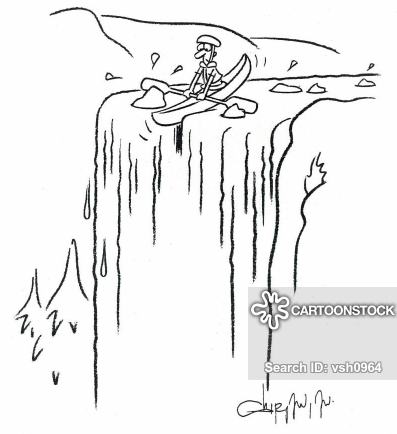
To learn to exit a kayak, swim to safety and to assist in being rescued.
To learn to break into and out of an eddy and fast moving water.
To learn paddle strokes, kayak control & positioning to navigate grade 2 water.
To learn how to prepare for a kayak session (safety gear, clothes, signals, vocabulary)Success Criteria
Can ensure own safety and that of others when on moving water.
Can explain kayaking terms, methods & equipment.
Can kayak confidently and competently on grade 2 water.We'll discuss:
Pre-water boat check (air bag, foot rest, back support, bung, paddle length, boat volume)
Pre-water self check (buoyancy aid vs life jacket, clothes, helmet, spray skirt tag visible)
Power, sweep, draw, and support paddle strokes.
Drops, eddys, emptying boats, X-rescues, capsizes and '3 bangs on hull'.Assessment
Your kayaking will contribute towards Assessment 1 and will be self and teacher / instructor assessed.
Self-assessment: part of the evidence for your grade will come from your reflections in your learning journal.
Teacher / Instructor assessment: other evidence will come from observations and conversations during the sessions regarding your contribution, team work and skills developmentIn your Learning Journal, you should reflect on how you've developed your skills, knowledge and attitude. Here's an example entry:
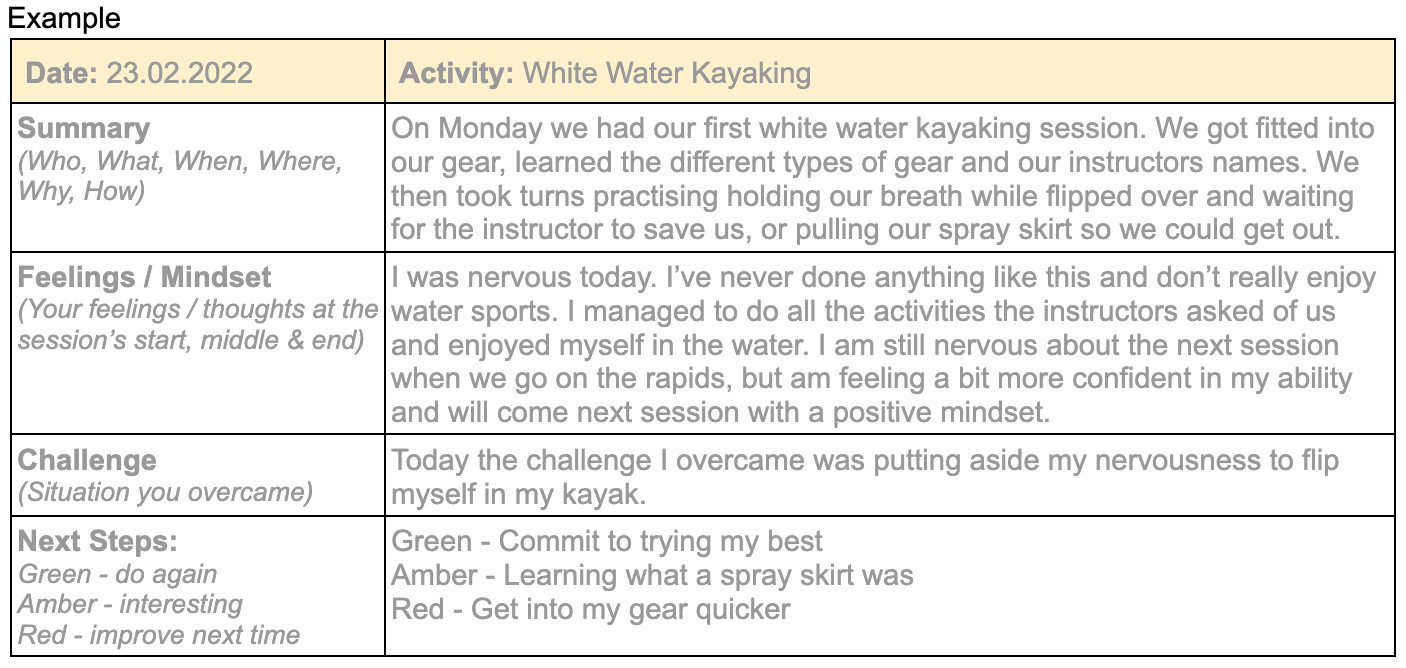
Here's some scribbles to jog your memory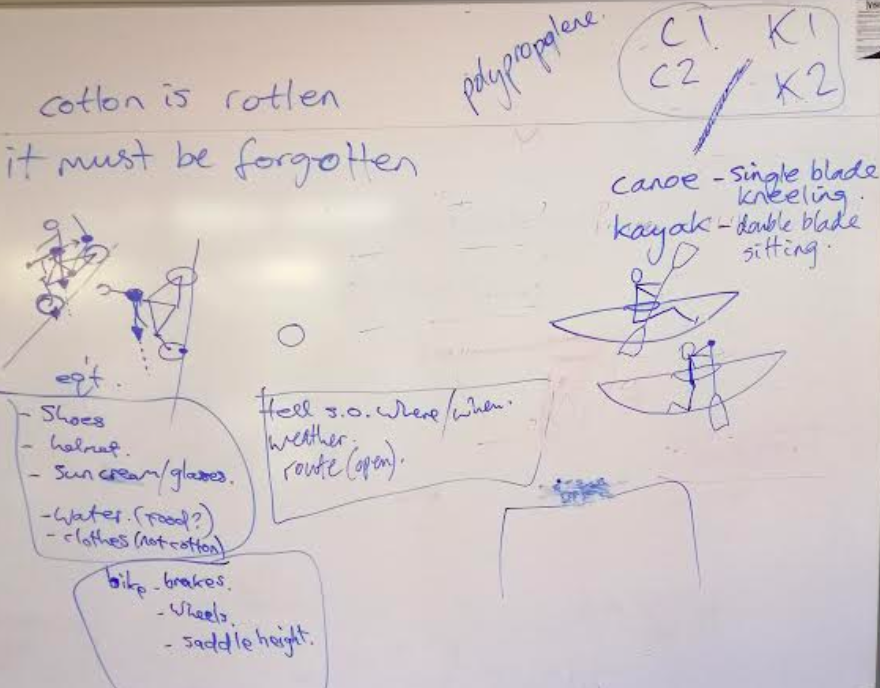
-
EXPLORE / TŪHURA learning intentions:
- We are EXPLORING … interpersonal skills by… connecting with other members of my class during ABL sessions and outdoor activities.
- We are EXPLORING … white water kayaking by… discovering a new enjoyable activity and how it contributes to personal well being.
- We are EXPLORING … mountain biking by… discovering a new enjoyable activity and how it contributes to personal well being.
FOCUS / ARONGA learning intentions:
- We are FOCUSING on … movement skills by… developing knowledge of motor skills required for a variety of outdoor activities.
- We are FOCUSING on … positive attitudes by… identifying the attitudes required to accept challenges, learn new skills and strategies, and extend my abilities in a variety of outdoor activities.
EXPLORE / TŪHURA learning intentions:
- We are EXPLORING … interpersonal skills by… connecting with other members of my class during ABL sessions and outdoor activities.
- We are EXPLORING … white water kayaking by… discovering a new enjoyable activity and how it contributes to personal well being.
FOCUS / ARONGA learning intentions:
- We are FOCUSING on … movement skills by… developing knowledge of motor skills required for a variety of outdoor activities.
- We are FOCUSING on … positive attitudes by… identifying the attitudes required to accept challenges, learn new skills and strategies, and extend my abilities in a variety of outdoor activities.
PLAN & DO / WHAKAMAHI learning intentions:
- We are PLANNING … to attend outdoor education activities so that we can… demonstrate and practice our newly acquired skills in a physical environment.


Learning Intentions

To learn to exit a kayak, swim to safety and to assist in being rescued.
To learn to break into and out of an eddy and fast moving water.
To learn paddle strokes, kayak control & positioning to navigate grade 2 water.
To learn how to prepare for a kayak session (safety gear, clothes, signals, vocabulary)Success Criteria
Can ensure own safety and that of others when on moving water.
Can explain kayaking terms, methods & equipment.
Can kayak confidently and competently on grade 2 water.We'll discuss:
Pre-water boat check (air bag, foot rest, back support, bung, paddle length, boat volume)
Pre-water self check (buoyancy aid vs life jacket, clothes, helmet, spray skirt tag visible)
Power, sweep, draw, and support paddle strokes.
Drops, eddys, emptying boats, X-rescues, capsizes and '3 bangs on hull'.Assessment
Your kayaking will contribute towards Assessment 1 and will be self and teacher / instructor assessed.
Self-assessment: part of the evidence for your grade will come from your reflections in your learning journal.
Teacher / Instructor assessment: other evidence will come from observations and conversations during the sessions regarding your contribution, team work and skills developmentIn your Learning Journal, you should reflect on how you've developed your skills, knowledge and attitude. Here's an example entry:

Here's some scribbles to jog your memory
-
EXPLORE / TŪHURA learning intentions:
- We are EXPLORING … interpersonal skills by… connecting with other members of my class during ABL sessions and outdoor activities.
- We are EXPLORING … white water kayaking by… discovering a new enjoyable activity and how it contributes to personal well being.
- We are EXPLORING … mountain biking by… discovering a new enjoyable activity and how it contributes to personal well being.
FOCUS / ARONGA learning intentions:
- We are FOCUSING on … movement skills by… developing knowledge of motor skills required for a variety of outdoor activities.
- We are FOCUSING on … positive attitudes by… identifying the attitudes required to accept challenges, learn new skills and strategies, and extend my abilities in a variety of outdoor activities.
EXPLORE / TŪHURA learning intentions:
- We are EXPLORING … interpersonal skills by… connecting with other members of my class during ABL sessions and outdoor activities.
- We are EXPLORING … white water kayaking by… discovering a new enjoyable activity and how it contributes to personal well being.
FOCUS / ARONGA learning intentions:
- We are FOCUSING on … movement skills by… developing knowledge of motor skills required for a variety of outdoor activities.
- We are FOCUSING on … positive attitudes by… identifying the attitudes required to accept challenges, learn new skills and strategies, and extend my abilities in a variety of outdoor activities.
PLAN & DO / WHAKAMAHI learning intentions:
- We are PLANNING … to attend outdoor education activities so that we can… demonstrate and practice our newly acquired skills in a physical environment.


Learning Intentions

To learn to exit a kayak, swim to safety and to assist in being rescued.
To learn to break into and out of an eddy and fast moving water.
To learn paddle strokes, kayak control & positioning to navigate grade 2 water.
To learn how to prepare for a kayak session (safety gear, clothes, signals, vocabulary)Success Criteria
Can ensure own safety and that of others when on moving water.
Can explain kayaking terms, methods & equipment.
Can kayak confidently and competently on grade 2 water.We'll discuss:
Pre-water boat check (air bag, foot rest, back support, bung, paddle length, boat volume)
Pre-water self check (buoyancy aid vs life jacket, clothes, helmet, spray skirt tag visible)
Power, sweep, draw, and support paddle strokes.
Drops, eddys, emptying boats, X-rescues, capsizes and '3 bangs on hull'.Assessment
Your kayaking will contribute towards Assessment 1 and will be self and teacher / instructor assessed.
Self-assessment: part of the evidence for your grade will come from your reflections in your learning journal.
Teacher / Instructor assessment: other evidence will come from observations and conversations during the sessions regarding your contribution, team work and skills developmentIn your Learning Journal, you should reflect on how you've developed your skills, knowledge and attitude. Here's an example entry:

Here's some scribbles to jog your memory
-
Mangemangeroa - Coastal Walk
Learning Intentions:
-
Discover the wildlife and landscapes along our coastal walk, and understand why it's important to take care of our natural environment.
-
Learn how to read maps, and find your way through the park, so you can confidently explore.
-
Find out how to stay safe on our outdoor adventures by recognizing and managing any potential risks along the way.
Success Criteria:
-
Identify and name at least three different plants or animals you encounter during the coastal walk
-
Successfully use a map to find your way to a predetermined location during the walk.
-
Point out at least two potential hazards during the walk and suggest ways to stay safe
We’ll discuss:
-
Mangemangeroa Park
-
Topo Map and Google Maps
-
Navigation and map reading
-
Health and Safety planning - being prepared
Week Tasks/Activities:
Mangemangeroa Coastal Challenge: - Navigation, Map Reading, Weather, Tides, Plant and animal ID, Conservation
William Pike Challenge - Journal Update and final conferences
-
-
Coastal Cleanup
Learning Intentions:
-
Discover the wildlife and plants at Coastal Cleanup (Te Puru - Maraetai/Duders, and understand why it's important to take care of our natural environment.
-
Learn how to read maps, and find your way through the park, so you can confidently explore.
-
Find out how to stay safe on our outdoor adventures by recognizing and managing any potential risks along the way.
Success Criteria:
-
Identify and name at least three different plants or animals you encounter during the hike
-
Successfully use a map and compass to find your way to a predetermined location during the hike.
-
Point out at least two potential hazards during the hike and suggest ways to stay safe
We’ll discuss:
-
Auckland Regional Park - Totara Park, and Botanical Gardens Website
-
Navigation and map reading
-
Health and Safety planning - being prepared
Week Tasks/Activities:
Coastal Cleanup and Conservation
Navigation, Health and Safety, Conservation
-
-
Mangemangeroa - Conservation
Learning Intentions:
-
Discover the wildlife and landscapes along our coastal walk, and understand why it's important to take care of our natural environment.
-
Learn how to read maps, and find your way through the park, so you can confidently explore.
-
Find out how to stay safe on our outdoor adventures by recognizing and managing any potential risks along the way.
Success Criteria:
-
Identify and name at least three different plants or animals you encounter during the coastal walk
-
Successfully use a map to find your way to a predetermined location during the walk.
-
Point out at least two potential hazards during the walk and suggest ways to stay safe
We’ll discuss:
-
Mangemangeroa Park
-
Topo Map and Google Maps
-
Navigation and map reading
-
Health and Safety planning - being prepared
Week Tasks/Activities:
Mangemangeroa Coastal Challenge: - Navigation, Map Reading, Weather, Tides, Plant and animal ID, Conservation
Outdoor Challenge - Journal Update and final conferences
-
-
Mangemangeroa - Conservation
Learning Intentions:
-
Discover the wildlife and landscapes along our coastal walk, and understand why it's important to take care of our natural environment.
-
Learn how to read maps, and find your way through the park, so you can confidently explore.
-
Find out how to stay safe on our outdoor adventures by recognizing and managing any potential risks along the way.
Success Criteria:
-
Identify and name at least three different plants or animals you encounter during the coastal walk
-
Successfully use a map to find your way to a predetermined location during the walk.
-
Point out at least two potential hazards during the walk and suggest ways to stay safe
We’ll discuss:
-
Mangemangeroa Park
-
Topo Map and Google Maps
-
Navigation and map reading
-
Health and Safety planning - being prepared
Week Tasks/Activities:
Mangemangeroa Coastal Challenge: - Navigation, Map Reading, Weather, Tides, Plant and animal ID, Conservation
Outdoor Challenge - Journal Update and final conferences
-
-
EXPLORE / TŪHURA learning intentions:
- We are EXPLORING … camping skills by… collaborating with our classmates to organise and plan for an overnight camp.
- We are EXPLORING … camping skills by… recognising risks and dangers whilst camping and cooking in the outdoors
- We are EXPLORING … camping & tramping by… discovering skills and knowledge needed for a tramp and overnight camp.
- We are EXPLORING … survival skills and strategies by… discovering a variety of skills required to protect ourselves in nature.
Here we talk about equipment to take on an overnight tramp, and put up tents in Tāne Forest.

There's useful info at this NZ Mountains Safety Council site
https://www.mountainsafety.org.nz/learn/activities/multiday-tramping/Here's a suggested gear list from Tararua Tramping Club
https://www.ttc.org.nz/pmwiki/pmwiki.php/Bushcraft/GearList
This week, we'll toast marshmallows over a camp fire!!
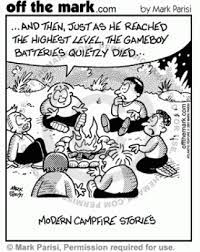
Start with small, dry kindling, and build up the size of wood slowly.
Any recent wet weather will not have helped!
Be patient.
Tents
Tramping tents must be light, waterproof, easy to put up, strong (in winds).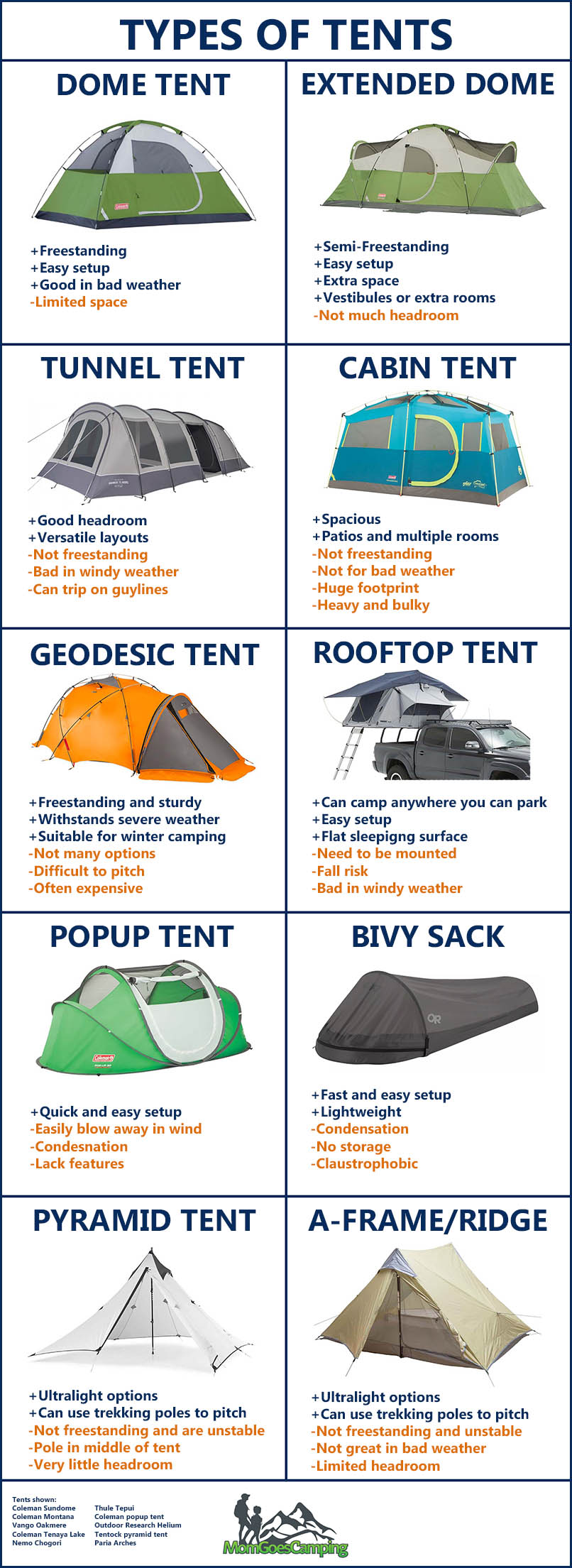 Pros & cons of tramping tents
Pros & cons of tramping tents
Usually they have an internal layer, made from a breathable net fabric, and a waterproof outer 'fly-sheet'.
It's important to pitch your tent on level ground in a place that won't flood (riverbed or 'bowl'), that is sheltered from the strongest winds, and that is not under dead branches, loose rocks or epiphytes.
Keep spare pegs, tent & pole bags, etc in the tent.
Never leave rubbish or food around the tent - take it home!
A lot of body warmth can be lost through the ground.
Always lie on something insulated like a foam roll mat (or leaves!).
Cooking
This is a high risk activity when camping.
Hot liquids can spill; naked flames can spread.
We use gas stoves, which must be used on level ground. NEVER run or be silly near cooking areas.
Cook away from the tent (or in the shelter of the entrance, if you really have to). Never inside the closed tent.
Food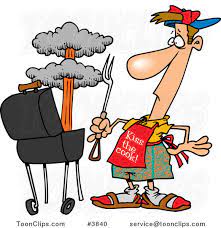 Hygiene is very important - wash hands and follow food storage guidelines.
Hygiene is very important - wash hands and follow food storage guidelines.
Pack light and small - dried food meals, no tins, etc.
Boil or purify (with a tablet) water from lakes or streams.
It can contain Giardia. -
EXPLORE / TŪHURA learning intentions:
- We are EXPLORING … camping skills by… collaborating with our classmates to organise and plan for an overnight camp.
- We are EXPLORING … camping skills by… recognising risks and dangers whilst camping and cooking in the outdoors
- We are EXPLORING … camping & tramping by… discovering skills and knowledge needed for a tramp and overnight camp.
- We are EXPLORING … survival skills and strategies by… discovering a variety of skills required to protect ourselves in nature.
This video clip will help us make notes on how we can reduce risk:
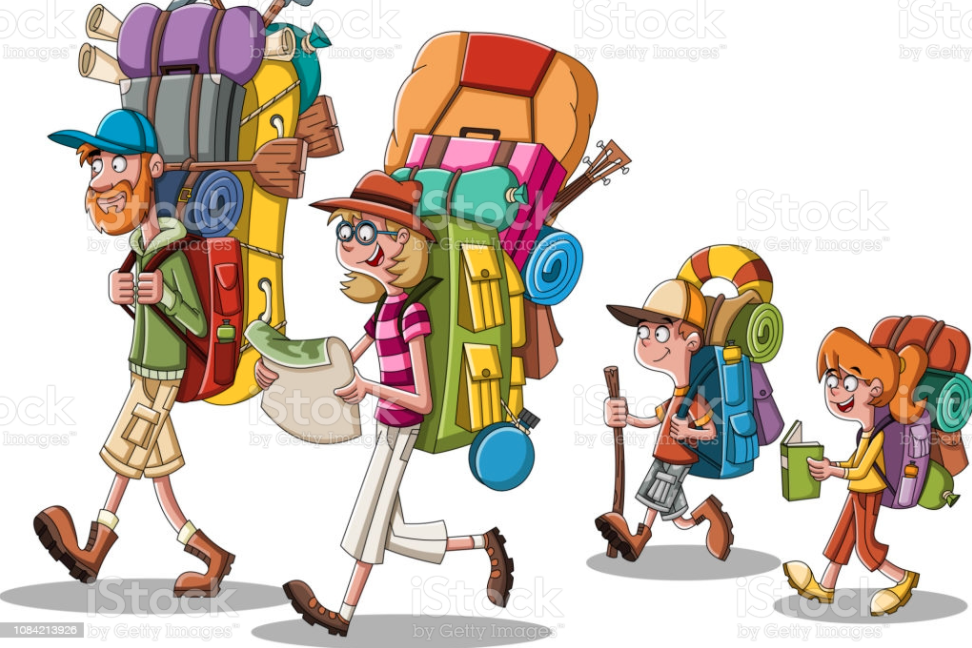 Before leaving on an adventure
Before leaving on an adventure
During the trip, especially if we get lost, tired or injured and can't continue
After the trip, when we finish
Parts (minutes): 6-10:30, 12-12:30, 14-14:25, 15-16:30, 17:18-18:50Before going on a trip, it's good to prepare a RAMS form.This stands for Risk Analysis Management Statement.It helps you make sure that you have thought of what might happen and what you need to keep safe.
Task on Google Classroom: "Planning a Trip so it's safe"
Here's a video by Ray Mears about surviving in the NZ outdoors.
As you watch the video, add to your notes on Joe Baugardner in the shared GDoc issued in GClassroom.
It outlines some mistakes made by a father & son on a tramping trip.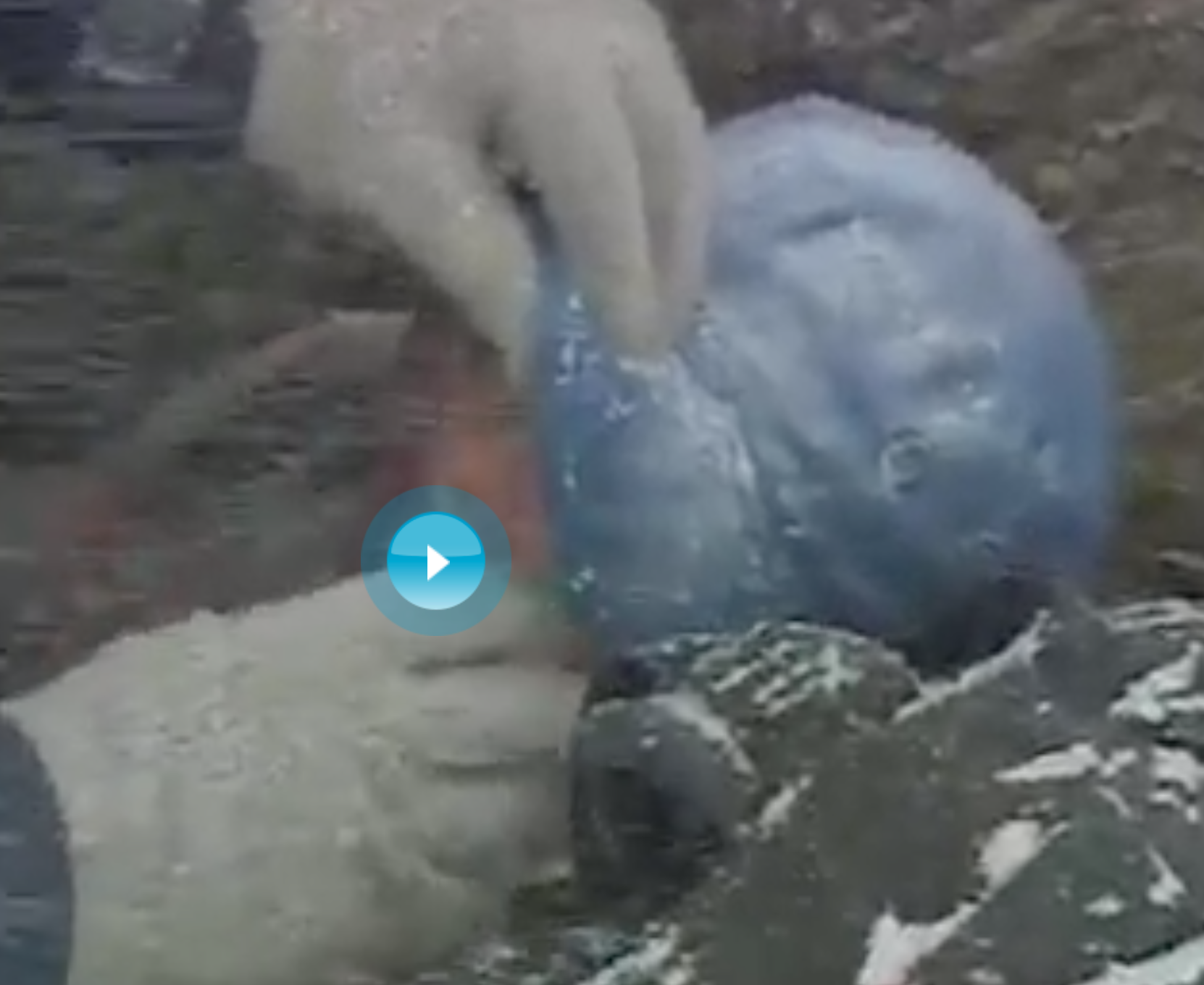
https://www.veoh.com/watch/v6336204t9Qxdwas
Extract (minutes) 2:16-8:05 mins
Extension activities:
- Find Waipakihi Hut on DoC's internet info and find it in Google maps.
- Find the Urchin & Umukarikari Tracks.
- Watch the above Ray Mears video at the following places:
Building a shelter extract (21:30 mins)
Making fire from wood extract (24:27 mins)
-
EXPLORE / TŪHURA learning intentions:
- We are EXPLORING … camping skills by… collaborating with our classmates to organise and plan for an overnight camp.
- We are EXPLORING … camping skills by… recognising risks and dangers whilst camping and cooking in the outdoors
- We are EXPLORING … camping & tramping by… discovering skills and knowledge needed for a tramp and overnight camp.
- We are EXPLORING … survival skills and strategies by… discovering a variety of skills required to protect ourselves in nature.
FOCUS / ARONGA learning intentions:
- We are FOCUSED on …safety management by… identifying the risks and safety protools needed whilst tramping/camping.
- We are FOCUSED on … safety management by… enhancing our camping and tramping skills in practice
Learning Intention: To show understanding of weather forecast information.
Success criteria:- Describe types of weather information available from two different sources.
- (48hr / multi-day / wind / rain forecasts, rain radars, hourly observations & forecasts, satellite imagery, severe weather watches and warnings from internet, TV, newspaper, radio).
- Identify weather map symbols.
(highs, lows, fronts (warm, cold, stationary, occluded), isobars. - Describe highs, lows, fronts (warm, cold, stationary, occluded) & isobars.
Success criteria:
- Obtain a weather forecast for the location for a planned outdoor recreation activity.
- Describe actions that could be taken for an outdoor activity in
response to a weather forecast.
(clothing & equipment to take, location selection, decision to go or not to go).
https://www.nzqa.govt.nz/nqfdocs/units/pdf/20159.pdf
Understanding, and checking, weather maps & forecasts is important before going on a trip.
Activity 1
Activity 2
This summary of 'How to read weather maps' outlines much of what you need to know.
We'll investigate it as a class.
Open the GDoc in GClassroom.
Cyclones & 'ENSO'.
This happens more often when the El Niño-Southern Oscillation ('ENSO') is a 'La Nina' weather pattern in the Ocean. The 'ENSO' was a 'La Nina' in 2020, but after 18 months it became neutral between a La Nina and an El NIno in 2023.
From January to April, we are affected by cyclones in the Pacific Ocean coming close to New Zealand. This usually brings hot & humid conditions (and more cyclones).Think about what sort of weather (humidity, temperature (air and sea), storms) we've been experiencing this summer
Below are some video clips of the weather forecast around the time of Cyclone Dovi in Feb 2022.
Wed 9th Feb 2022
Fri 11th Feb 2022
Sat 12th Feb 2022
Sun 13th Feb 2022
Surface Pressure maps for Sunday to Tuesday after Cyclone Dovi passes NZ:General Resources
- NCEA Unit Std 20160 L3 (2 credits)
Demonstrate knowledge of weather processes and their effects in NZ
https://www.nzqa.govt.nz/ncea/assessment/view-detailed.do?standardNumber=20160 - Weather Watch website
https://www.weatherwatch.co.nz/ - Meteorological Society of NZ
https://www.metsoc.org.nz/weather-resources/ - Victoria University weather service maps (show wind direction, pressure & rain)
http://www.metvuw.com/forecast/forecast.php?type=rain®ion=nzni&noofdays=1 - Mountain Safety Council website
https://www.mountainsafety.org.nz/resources/outdoor-safety-code/be-aware-of-the-weather/
-
EXPLORE / TŪHURA learning intentions:
- We are EXPLORING … camping skills by… collaborating with our classmates to organise and plan for an overnight camp.
- We are EXPLORING … camping skills by… recognising risks and dangers whilst camping and cooking in the outdoors
- We are EXPLORING … camping & tramping by… discovering skills and knowledge needed for a tramp and overnight camp.
- We are EXPLORING … survival skills and strategies by… discovering a variety of skills required to protect ourselves in nature.
FOCUS / ARONGA learning intentions:
- We are FOCUSED on …safety management by… identifying the risks and safety protools needed whilst tramping/camping.
- We are FOCUSED on … safety management by… enhancing our camping and tramping skills in practice
PLAN & DO / WHAKAMAHI learning intentions:
- We are PLANNING … an overnight camp at MHJC so that we can… practice a successful overnight camp.
- We are PLANNING … a tramp/camp so that we can… apply our learning around safety management in the outdoors.
First Aid means you're the first person to help someone.

It's important to go on a proper First Aid course (eg RedCross, St Johns, Meditrain).
(Lessons on this course are not a 1st Aid course, but a taster things you should learn).A good way to remember what to do is to follow the steps DRSABCD:
Danger - keep you and others safe (eg stop cars before helping someone who's in the road!)
Response - see if the person knows you're there and can communicate
Send for help - phone 111 or tell someone to get adult help
Airway - make sure the person's airway is open and not blocked
Breathing - see if they are breathing
Circulation - search for blood and stop the bleeding
Defibrillate - use an Automated External Defibrillator (AED)Questions you might have:
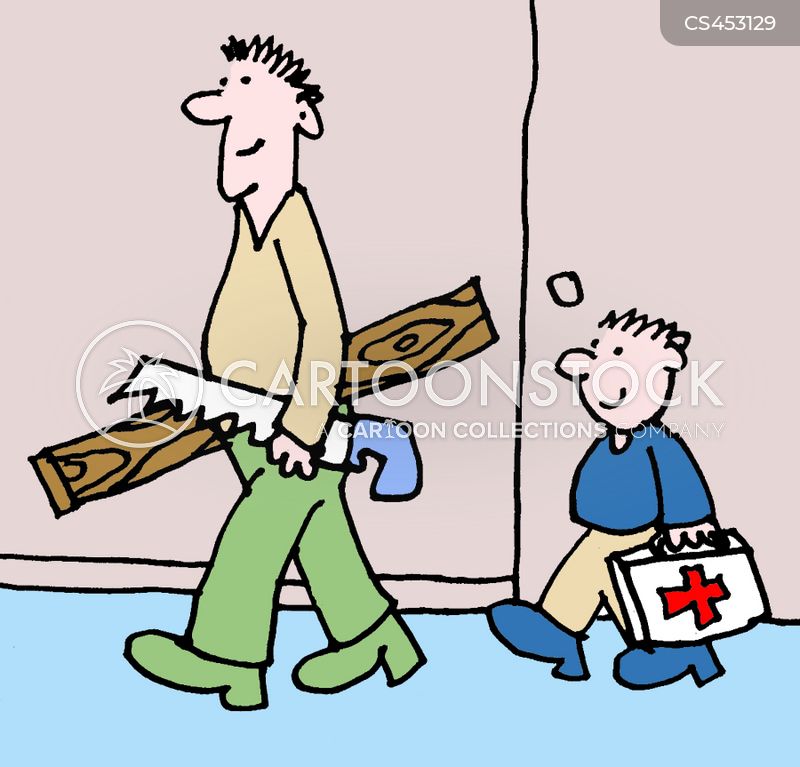
- Why's it important that I do a proper First Aid course?
- What do I do if there's bleeding?
- How do first aiders treat burns?
- What's diabetes and what can happen?
- What happens if someone breaks a bone or dislocates a joint?
- What do I do if I sprain a ligament / strain a tendon?
- What is a heart attack and what are the signs?
- What do I do if someone has a seizure?
- What can happen if someone's allergic? What's anaphalaxis?
- What's concussion?
Call 111 in New Zealand for emergency services (fire, ambulance, police)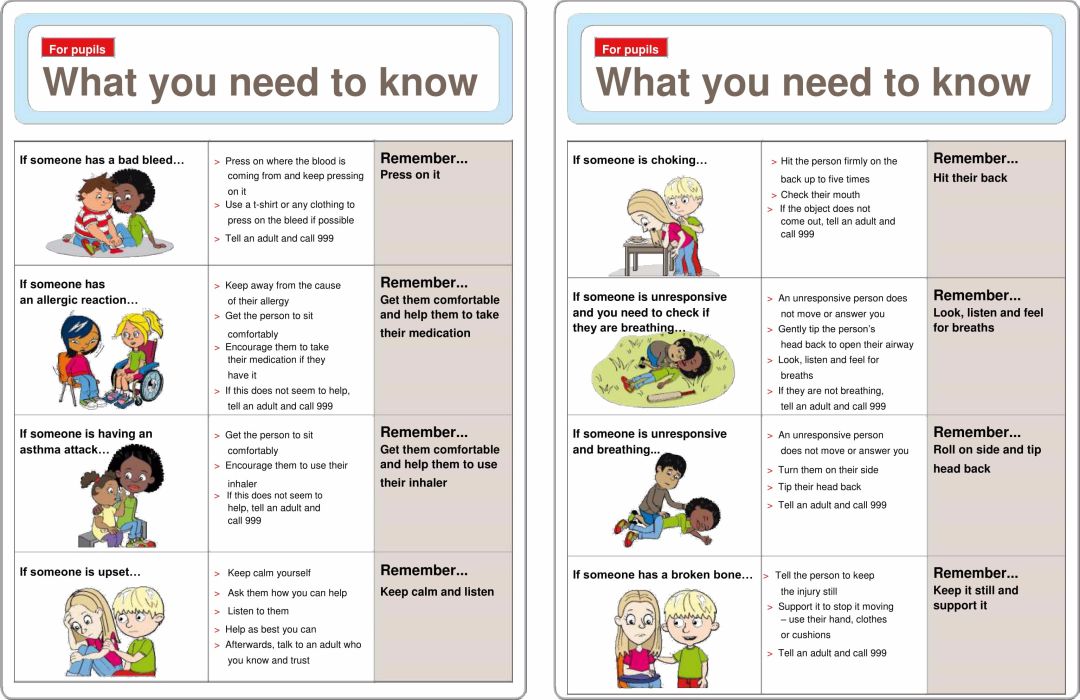
Activity
Click on the First Aid Scenarios in GClassroom
-
FOCUS / ARONGA learning intentions:
- We are FOCUSED on …safety management by… identifying the risks and safety protools needed whilst tramping/camping.
- We are FOCUSED on … safety management by… enhancing our camping and tramping skills in practice
REFLECT / WHAIWHAKAARO learning intentions:
- We are REFLECTING on … our first camping experience by… reflecting on any barriers and enablers.
Outdoors beyond NZ
Activity:
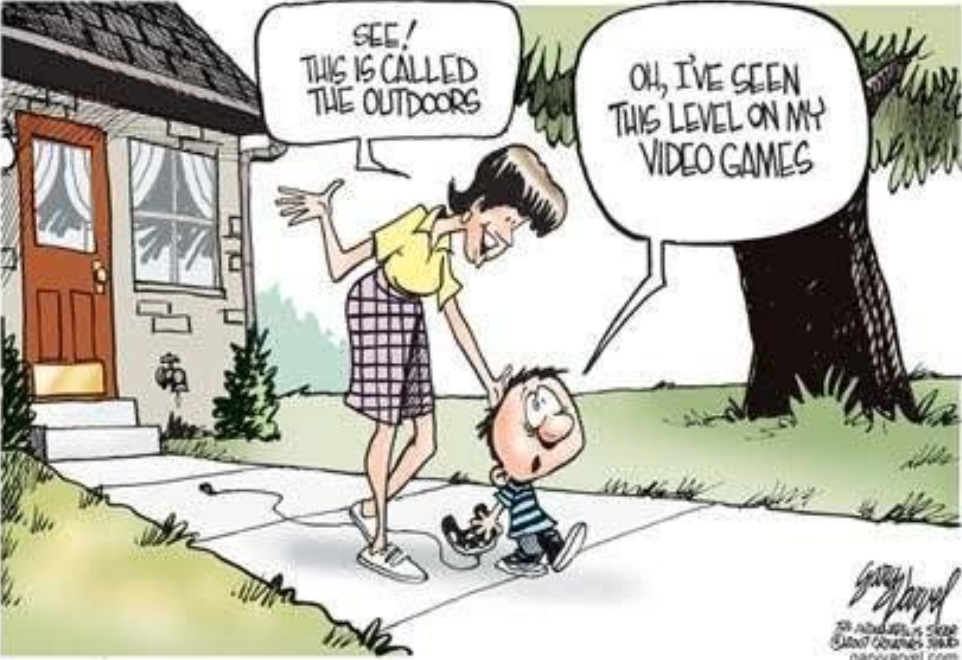 Watch these videos of extreme kayaking, solo climbing and mountain biking.On Google Maps or Google Earth, find Yosemite National Park and the rock outcrop called El Capitan, that Alex Honnold climbed without ropes.
Watch these videos of extreme kayaking, solo climbing and mountain biking.On Google Maps or Google Earth, find Yosemite National Park and the rock outcrop called El Capitan, that Alex Honnold climbed without ropes.
Activity:
Imagine that you were given $1 million to use for travel.
Make a list of places in the World that you'd like to visit and/or things that you'd like to do.
Find tour companies that offer these experiences and find out how much it might cost.
For example,
- sleep in an igloo and watch the Southern (or Northern) Lights (Aurora Australis or Borealis);
- trek across the Sahara desert on a camel
- swim with sharks
- climb Mount Everest
- etc
Outdoors in NZ
Activity:
Now think about New Zealand.
Find information about activities closer to home. For example:
- Where can you go cage diving with sharks?
- What's the highest waterfall that you can white water raft over? Where is it?
- Are there Marine Parks around NZ and can you scuba dive there?
- How much is it to stay in a Department of Conservation hut?
- How many 'Great Walks' are in NZ - where are they and which would you like to walk?
On Google Earth, try to trace the route of one of the 'Great Walks' (info on them is below)The Great Walks
-
FOCUS / ARONGA learning intentions:
- We are FOCUSED on …safety management by… identifying the risks and safety protools needed whilst tramping/camping.
- We are FOCUSED on … safety management by… enhancing our camping and tramping skills in practice
PLAN & DO / WHAKAMAHI learning intentions:
- We are PLANNING … an overnight camp at MHJC so that we can… practice a successful overnight camp.
- We are PLANNING … a tramp/camp so that we can… apply our learning around safety management in the outdoors.
We're tramping from Duders Regional Park to Omana Regional Park.
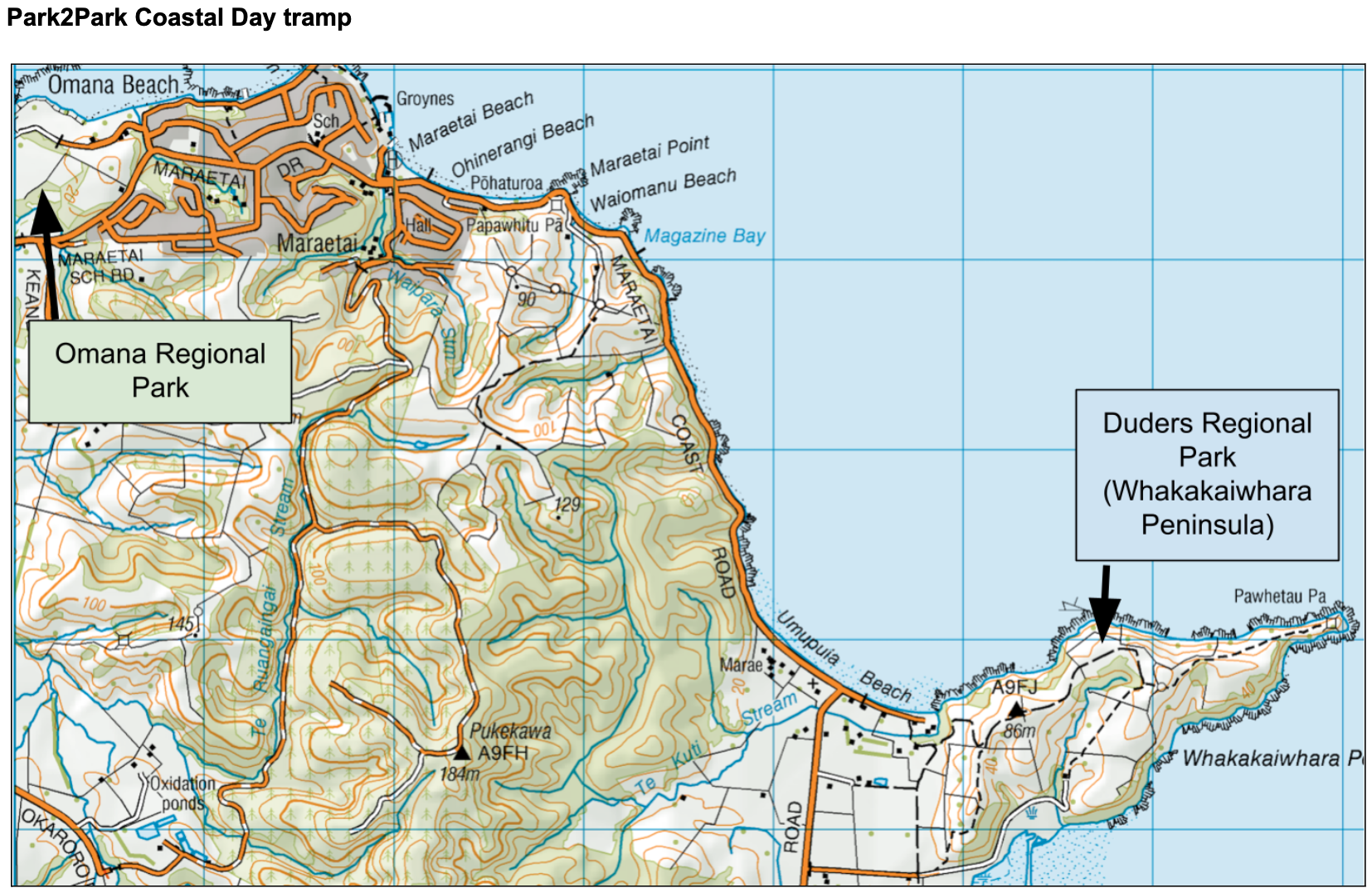
-
REFLECT / WHAIWHAKAARO learning intentions:
- We are REFLECTING on … our first camping experience by… reflecting on any barriers and enablers.
-
Coastal Walk Omana/Maraetai Challenge - Team Building challenges and Navagation to promote fun and conservation in the outdoors
Learning Intentions:
-
Discover the wildlife and plants at Coastal Cleanup (Te Puru - Maraetai/Duders, and understand why it's important to take care of our natural environment.
-
Learn how to read maps, and find your way through the park, so you can confidently explore.
-
Find out how to stay safe on our outdoor adventures by recognizing and managing any potential risks along the way.
Success Criteria:
-
Identify and name at least three different plants or animals you encounter during the hike
-
Successfully use a map and compass to find your way to a predetermined location during the hike.
-
Point out at least two potential hazards during the hike and suggest ways to stay safe
We’ll discuss:
-
Auckland Regional Park - Totara Park, and Botanical Gardens Website
-
Navigation and map reading
-
Health and Safety planning - being prepared
Week Tasks/Activities:
Coastal Cleanup and Conservation
Navigation, Health and Safety, Conservation
-
-
REFLECT / WHAIWHAKAARO learning intentions:
- We are REFLECTING on … our first camping experience by… reflecting on any barriers and enablers.
